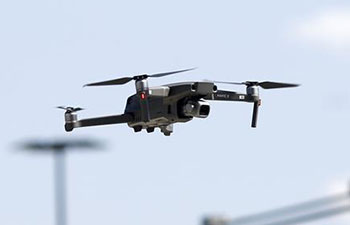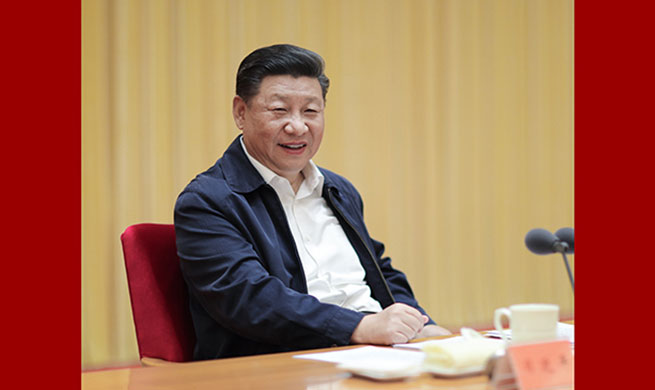UNITED NATIONS, Aug. 23 (Xinhua) -- A high-ranking UN counter-terrorism official on Thursday highlighted the challenges posed by returning and relocating foreign terrorist fighters (FTFs).
Even though the number of returning and relocating FTFs is thus far not as high as some had feared, their unique situation nonetheless poses a range of challenges to member states, UN Assistant Secretary-General Michele Coninsx told the Security Council.
UN member states have experienced difficulties in conducting comprehensive risk assessments of those who return and their accompanying family members, as requested by a Security Council resolution, she said.
The prosecution of returning and relocating FTFs also faces various evidentiary and jurisdictional challenges. In some cases, a revision of the existing legal framework is required. Prosecutors and investigators require specialized knowledge. They must often rely on evidence gathered by the military or on digital evidence located on foreign servers.
Strengthening judicial cooperation and mutual legal assistance therefore remains vital, said Coninsx, who is also the chief of the Counter-Terrorism Committee Executive Directorate, which advises the Security Council's Counter-Terrorism Committee.
States must also develop tailored prosecution strategies for returning and relocating fighters. Even though member states have developed a range of rehabilitation and reintegration strategies and programs, there is limited knowledge as to their effectiveness, she said.
A significant number of FTFs have already entered states' criminal-justice systems. This is placing new demands on prisons and raising concerns about the potential for in-prison radicalization, said Coninsx.
More work is needed to address issues such as prison capacity and security; the conditions of, and treatment in, detention; the specific needs and risks associated with violent extremist prisoners; and the development of non-custodial alternatives, she said.
Coninsx also reminded member states of the potential risks posed by the forthcoming release of imprisoned FTFs, as some of those released FTFs may re-engage in terrorist activities and radicalization to violence.
Many states are uncertain as to the effectiveness of risk-assessment and monitoring tools developed for such individuals, whether during their imprisonment or following their release, she said.
A number of FTFs have been given relatively short sentences, for different reasons, including in some cases due to lack of evidence of their involvement in terrorist activities in the conflict zones. In such cases, member states may have limited opportunity to engage at-risk individuals in rehabilitation and reintegration programs prior to their release, she said.
There is therefore a need to strengthen the collection of data and information-sharing in this area, including on lessons learned, in order to ensure that rehabilitation and reintegration programs are based on sound methodologies and are implemented in full compliance with domestic law and international human rights law, she said.
Coninsx also pointed at the bigger picture of the ongoing transformation of the Islamic State into a covert network, the activities of its regional affiliates throughout the world.
Foreign terrorist fighters are only one threat emanating from the IS and its associates. The complex and evolving threat posed by terrorism requires the world to remain ever vigilant, she said.

















